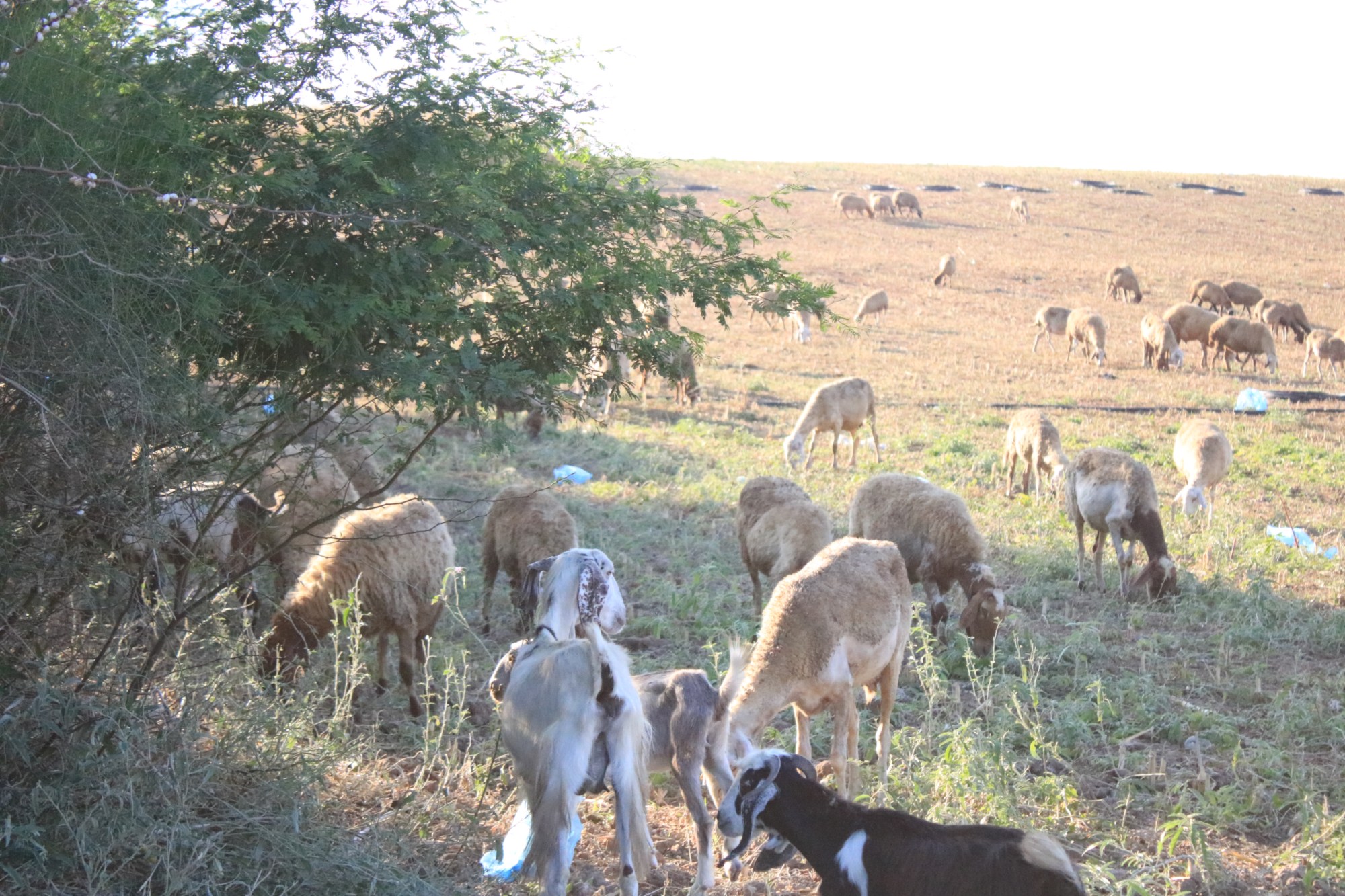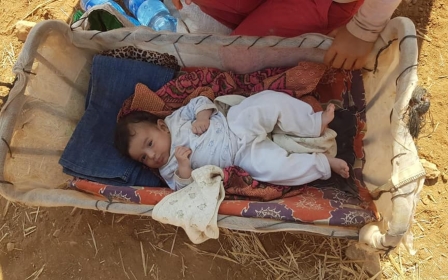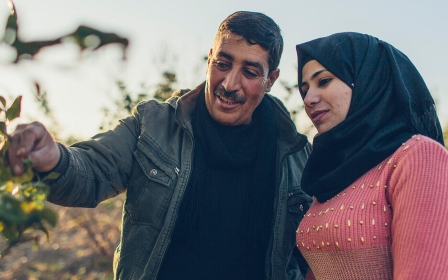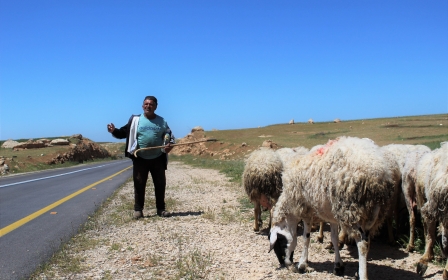Danger from above: Gaza farmers struggle to save crops from Israeli planes
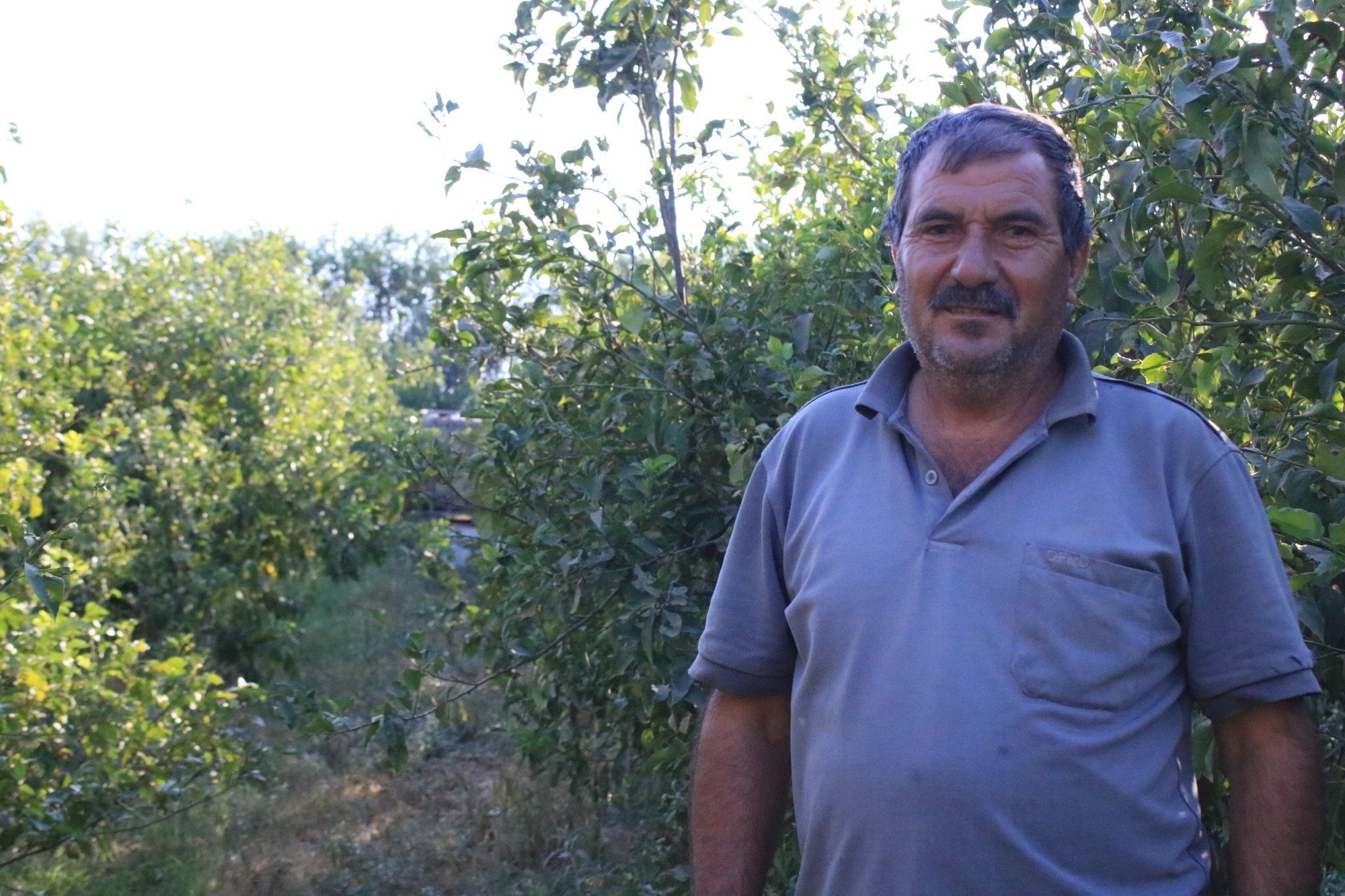
Mustafa Abu Owda, 57, looks anxiously up at the sky, tensing up at the thought of seeing an Israeli aircraft looming above.
Earlier this year, the hard-working Palestinian farmer, who cultivates about 80 dunams (8 hectares) of land in Beit Hanoun, a village in the northern Gaza Strip, endured serious damage to his wheat and corn crops after Israeli planes dumped chemical herbicides on the Israeli side of the separation fence, the herbicides then drifting into Gaza.
"The Israeli military sprayed these herbicides, and the wind blew the substances deep into our crops, which has resulted in withered grains," he told Middle East Eye.
According to Adham al-Basiouni, the spokesperson for Gaza's agricultural ministry, no fewer than 150 hectares of land are impacted by Israeli chemical spraying every year in the besieged Gaza Strip.
While the Israeli army regularly claims that the herbicides are used to clear vegetation in the buffer zone on the Gaza side of the fence in order to have a clearer view of the area for military purposes, Basiouni argued that "the true reason behind these unjustified Israeli crimes is Israel's attempt to force the Palestinian farmers to abandon their land, and make the Palestinian market totally reliant on Israeli agricultural imports".
New MEE newsletter: Jerusalem Dispatch
Sign up to get the latest insights and analysis on Israel-Palestine, alongside Turkey Unpacked and other MEE newsletters
'Tremendous losses'
Basiouni told MEE that the crop-dusting planes tend to come out and cause damage during the most important agricultural seasons every year, sprayed when the wind direction effectively ensures that the chemical substances reach more than 300 metres into Gaza's farmlands.
With two million inhabitants squeezed into 365 square kilometres under an Israeli siege supported by neighbouring Egypt, agricultural space is limited in Gaza, making the impact of these chemicals all the more devastating.
"Farmland along the eastern borders from Beit Hanoun in the north to Rafah in the south sustain grave damage every year due to the Israeli aerial spraying, which are carried out without advance notice to our farmers to give them a chance to cover their crops before the spraying," Basiouni said.
The spokesman noted that farmland in Gaza’s buffer zone - a "no-go" zone imposed by the Israeli army stretching some 300 metres inside Gaza along the separation fence - contributes to 25 percent of Gaza's total economic production, with farming representing the sole source of income for hundreds of poor families.
"The recurrent herbicidal spraying along the eastern Gaza boundary damage our agricultural crops, incurring tremendous losses for poor farmers who cultivate their land near the perimeter fence," Abu Owda pointed out.
Abu Owda has been planting and cultivating these farmlands since the mid-1970s and has experienced first hand the destructive Israeli practices along the boundary, whether it is land razing, military invasions, or other policies targeting Palestinian farmers.
These days, Abu Owda's lands are planted with lemons, beet, fava beans and other green vegetables, all of which are very sensitive to the sprayed substances.
"These crops do not take a long time to ripen," he said. "I hope I will harvest them before the notorious Israeli planes visit the farms."
In violation of law
In July, Forensic Architecture research agency issued a report titled "Herbicidal Warfare in Gaza," detailing the impact of the herbicides.
Over the span of 16 months of investigation, Forensic Architecture reported that the Israeli military sprayed herbicides more than 30 times along Gaza's eastern boundary over the past five years.
The research, which analysed affected leaf samples and interviewed farmers working along the borders, concluded that the concentration levels of chemicals sprayed were higher than European Union standards, and caused serious damage in affected areas.
'All these destructive practices we fear are to turn our land into a barren, scorched, and dead zone'
- Adham al-Basiouni, Ministry of Agriculture spokesman
Yahya Muharab, an activist with the Gaza-based human rights group Al-Mezan, said that the Israeli military had previously lit fires in order to better observe the direction of the wind and make sure it blew towards Gaza before spraying herbicides. He claimed it was a deliberate attempt to damage as many crops and weeds as possible.
Muharab noted that Al-Mezan and fellow rights groups Gisha and Adalah had petitioned the Israeli army to compensate Palestinian farmers for their losses, but that the military had rejected the request.
"The continuous destructive Israeli practices along the borders violate international law, and even the Israeli Plant Protection Law that was issued in 1956, which says that the military actions should take the environment into consideration and not harm it," he said.
Long-term effects
Muharab said that losses incurred by Palestinian farmers are estimated in the tens of thousands of dollars every year.
"Palestinian farmers - some of them rent the land and do not own it - cultivate the farm, plant grains, irrigate it and then end up having killed crops at the end of the season because of the Israeli spraying," he said.
"The Israeli military claims that the herbicides are important to clear the view for the Israeli soldiers, without any regard to the grave damage incurred upon the other side of the borders," Muharab said.
The human rights activist did say that this year witnessed a drop of these herbicides in some areas, where better farming conditions were reported.
But Basiouni noted that the chemicals remain in the soil for a long time and their effects are felt for years.
"The land near the so-called buffer zone has long been a spot for Israeli bombings, artillery shelling, and spraying. All these destructive practices we fear are to turn our land into a barren, scorched, and dead zone," he said.
The impact of the chemicals on agricultural production is, however, not the only serious consequence, as farmers who inhaled the herbicides have experienced health issues, as well as for their livestock grazing in the affected lands.
"These sprayings are not only harmful for our crops but also for us and our animals.” Abu Owda said. “I used to cover my nose when I try to cover my crops during the Israeli spraying.
"The poor Palestinian farmer is helpless. All he has is the hoe in his hand to cultivate his land and sustain his family,” he concluded.
“Let us do our work without hazard, terror, and obstacles.”
Middle East Eye delivers independent and unrivalled coverage and analysis of the Middle East, North Africa and beyond. To learn more about republishing this content and the associated fees, please fill out this form. More about MEE can be found here.


